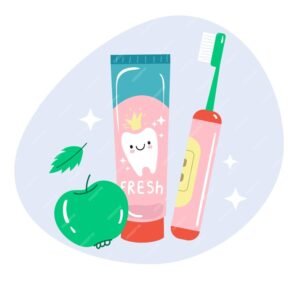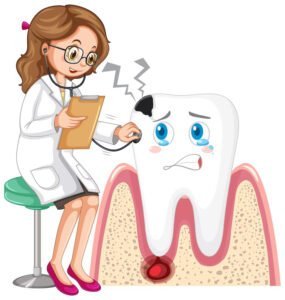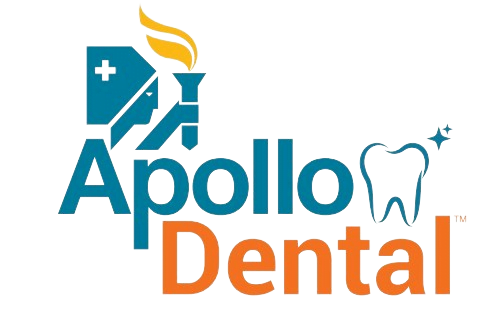Maintaining good oral hygiene is crucial for overall health and well-being. While many people may overlook the importance of oral care, poor oral hygiene can have significant consequences beyond just tooth decay and bad breath.
Oral hygiene refers to the practices and habits that individuals adopt to keep their mouths, teeth, and gums clean and healthy. It involves regular care and maintenance to prevent dental issues such as tooth decay, gum disease, and bad breath. Good oral hygiene practices are essential for maintaining optimal oral health and overall well-being.
Essential Tips for Effective Oral Hygiene
The key components of oral hygiene include:
 Regularly brushing your teeth with fluoride toothpaste is a fundamental aspect of oral hygiene. It helps remove plaque, a sticky film of bacteria that forms on teeth and can lead to tooth decay and gum disease. Brushing should be done at least twice a day, using a soft-bristled toothbrush and proper brushing technique.
Regularly brushing your teeth with fluoride toothpaste is a fundamental aspect of oral hygiene. It helps remove plaque, a sticky film of bacteria that forms on teeth and can lead to tooth decay and gum disease. Brushing should be done at least twice a day, using a soft-bristled toothbrush and proper brushing technique.
- Flossing: Flossing is the process of cleaning between the teeth and along the gum line to remove plaque and food particles that brushing alone may not reach. It helps prevent cavities, gum inflammation, and bad breath. Flossing should be done at least once a day, using dental floss or interdental cleaners.
- Mouthwash: Using an antimicrobial mouthwash can help reduce bacteria in the mouth and freshen your breath. Mouthwash is not a substitute for brushing and flossing but can be used as an adjunct to enhance oral hygiene.
- Healthy Diet: A balanced diet that is low in sugary and acidic foods and beverages contributes to good oral health. Consuming a variety of nutrient-rich foods, such as fruits, vegetables, whole grains, and lean proteins, helps promote healthy teeth and gums.
- Regular Dental Check-ups: Routine visits to the dentist are essential for preventive care and early detection of dental issues. Dentists can perform professional cleanings, examine the teeth and gums, and provide necessary treatments or recommendations to maintain optimal oral health.
- Avoiding Tobacco and Limiting Alcohol: Tobacco use, including smoking and smokeless tobacco, increases the risk of oral cancer, gum disease, tooth loss, and other oral health problems. Limiting alcohol consumption also helps protect oral health as excessive alcohol intake is associated with an increased risk of oral cancer and gum disease.
By incorporating these oral hygiene practices into your daily routine, you can promote healthy teeth, gums, and overall oral health. It is important to establish good oral hygiene habits from an early age and maintain them throughout life to prevent oral health issues and enjoy a confident smile.
How oral health can impact your life
In this article, we will explore five ways in which neglecting your oral health can impact your life.

- Increased Risk of Dental Problems: When oral hygiene is neglected, harmful bacteria in the mouth can multiply, leading to a variety of dental problems. Tooth decay, gum disease, and periodontitis are common issues that can result from poor oral hygiene. These conditions can cause pain, tooth loss, and expensive dental procedures. Regular brushing, flossing, and dental check-ups are essential for preventing these problems.
- Adverse Effects on Overall Health: Oral health is closely linked to overall health. Poor oral hygiene can contribute to various systemic conditions and exacerbate existing ones. Research has shown that gum disease is associated with an increased risk of cardiovascular disease, respiratory infections, diabetes, and preterm birth. By neglecting your oral health, you may inadvertently be compromising your overall well-being.
- Negative Impact on Self-Confidence: A healthy smile plays a vital role in our self-esteem and confidence. Poor oral hygiene can lead to issues like bad breath, stained teeth, and tooth loss, which can significantly impact how we perceive ourselves and how others perceive us. Embarrassment about the appearance of your teeth may limit your social interactions and affect your overall quality of life.
- Impaired Digestion: The process of digestion begins in the mouth. Proper chewing breaks down food into smaller particles, aiding digestion and nutrient absorption. However, poor oral hygiene can lead to dental pain, gum disease, and tooth loss, making it difficult to chew food properly. This can result in swallowing larger food particles, leading to inadequate digestion and potential digestive problems.
- Impact on Speech and Communication: Oral health is crucial for clear speech and effective communication. Neglected oral hygiene can cause issues such as tooth decay, gum disease, and missing teeth, which can affect your ability to pronounce words clearly. Speech problems can hinder effective communication, leading to misunderstandings, social awkwardness, and reduced confidence in public speaking or professional interactions.
FAQS
Here are some frequently asked questions about oral hygiene:
Q: Why is oral hygiene important?
A: Oral hygiene is important because it helps prevent dental issues such as tooth decay, gum disease, and bad breath. It also contributes to overall health, as poor oral health has been linked to various systemic conditions like cardiovascular disease and diabetes. Additionally, maintaining good oral hygiene promotes a confident smile and enhances self-esteem.
Q: How often should I brush my teeth?
A: It is recommended to brush your teeth at least twice a day, preferably in the morning and before bedtime. Brushing for two minutes each time is ideal. Use a soft-bristled toothbrush and fluoride toothpaste to effectively remove plaque and debris from your teeth.
Q: Should I floss every day?
A: Yes, flossing is an important part of oral hygiene and should be done at least once a day. Flossing helps remove plaque and food particles from between the teeth and along the gum line, where a toothbrush cannot reach easily.
Q: Is mouthwash necessary?
A: While not essential, using an antimicrobial mouthwash can be beneficial as it helps reduce bacteria in the mouth and freshens breath. However, it should be noted that mouthwash is not a substitute for brushing and flossing.
Q: How often should I visit the dentist?
A: Regular dental check-ups are crucial for preventive care and maintaining oral health. It is generally recommended to visit the dentist every six months for routine examinations and professional cleanings. However, the frequency may vary depending on individual needs and the dentist’s recommendations.
Q: Can poor oral hygiene affect overall health?
A: Yes, poor oral hygiene can have an impact on overall health. Research has linked gum disease to an increased risk of cardiovascular disease, respiratory infections, diabetes, and preterm birth. Bacteria from the mouth can also enter the bloodstream and potentially contribute to systemic inflammation and other health issues.
Q: How does diet affect oral hygiene?
A: A healthy diet plays a significant role in maintaining good oral hygiene. Consuming a balanced diet that is low in sugary and acidic foods and beverages helps prevent tooth decay and gum disease. Nutrient-rich foods like fruits, vegetables, whole grains, and lean proteins contribute to healthy teeth and gums.
Q: Is smoking harmful to oral health?
A: Yes, smoking and using tobacco products can have detrimental effects on oral health. Smoking increases the risk of oral cancer, gum disease, tooth loss, and other oral health problems. It also stains the teeth, causes bad breath, and impairs the ability to taste and smell.
Conclusion:
Maintaining good oral hygiene is not just about having a dazzling smile; it is about safeguarding your overall health and well-being. Poor oral hygiene can have far-reaching consequences, including dental problems, compromised general health, reduced self-confidence, impaired digestion, and communication difficulties. By prioritizing regular brushing, flossing, dental check-ups, and adopting a healthy lifestyle, you can protect your oral health and enjoy a better quality of life.
Remember, a healthy smile is a reflection of a healthy body, so take care of your teeth and gums for a brighter and healthier future. It’s always best to consult with a dentist for personalized advice and guidance regarding your specific oral health needs.

